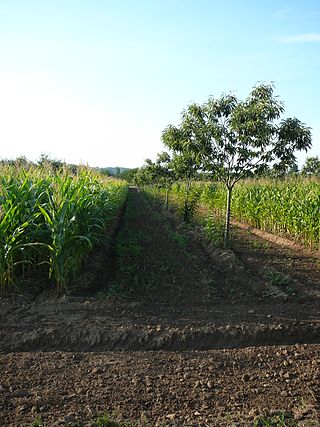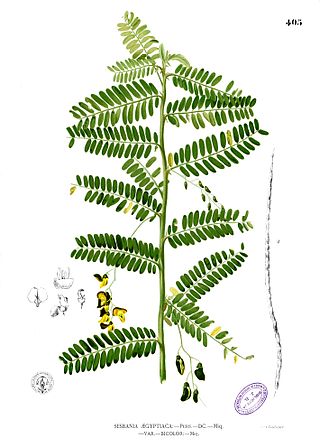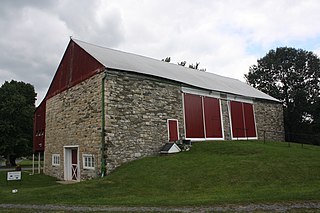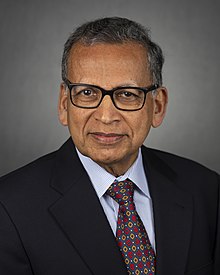
Agricultural science is a broad multidisciplinary field of biology that encompasses the parts of exact, natural, economic and social sciences that are used in the practice and understanding of agriculture. Professionals of the agricultural science are called agricultural scientists or agriculturists.

Agronomy is the science and technology of producing and using plants by agriculture for food, fuel, fiber, chemicals, recreation, or land conservation. Agronomy has come to include research of plant genetics, plant physiology, meteorology, and soil science. It is the application of a combination of sciences such as biology, chemistry, economics, ecology, earth science, and genetics. Professionals of agronomy are termed agronomists.
Agroecology is an academic discipline that studies ecological processes applied to agricultural production systems. Bringing ecological principles to bear can suggest new management approaches in agroecosystems. The term can refer to a science, a movement, or an agricultural practice. Agroecologists study a variety of agroecosystems. The field of agroecology is not associated with any one particular method of farming, whether it be organic, regenerative, integrated, or industrial, intensive or extensive, although some use the name specifically for alternative agriculture.

Agroforestry is a land use management system that integrates trees with crops or pasture. It combines agricultural and forestry technologies. As a polyculture system, an agroforestry system can produce timber and wood products, fruits, nuts, other edible plant products, edible mushrooms, medicinal plants, ornamental plants, animals and animal products, and other products from both domesticated and wild species.
Pedro Sanchez is the director of the Agriculture & Food Security Center, senior research scholar, and director of the Millennium Villages Project at the Earth Institute at Columbia University. Sanchez was director general of the World Agroforestry Centre (ICRAF) headquartered in Nairobi, Kenya from 1991-2001, and served as co-chair of the UN Millennium Project Hunger Task Force. He is also professor emeritus of soil science and forestry at North Carolina State University, and was a visiting professor at the University of California, Berkeley.
Soil health is a state of a soil meeting its range of ecosystem functions as appropriate to its environment. In more colloquial terms, the health of soil arises from favorable interactions of all soil components that belong together, as in microbiota, plants and animals. It is possible that a soil can be healthy in terms of ecosystem functioning but not necessarily serve crop production or human nutrition directly, hence the scientific debate on terms and measurements.

Sesbania sesban, the Egyptian riverhemp, is a species of plant in the legume family, a fast growing species, it has four varieties that are currently recognized.

Rodale Institute is a non-profit organization that supports research into organic farming. It was founded in Emmaus, Pennsylvania in 1947 by J. I. Rodale, an organic living entrepreneur. After J.I. Rodale died in 1971, his son Robert Rodale purchased 333 acres and moved the farm to Kutztown, Pennsylvania.
Derrick Thomas was a British agricultural researcher with special contributions to grassland and forage research in the tropics.

The Indian Institute of Soil Science is an autonomous institute for higher learning, established under the umbrella of Indian Council of Agricultural Research (ICAR) by the Ministry of Agriculture, Government of India for advanced research in the field of soil sciences.

Regenerative agriculture is a conservation and rehabilitation approach to food and farming systems. It focuses on topsoil regeneration, increasing biodiversity, improving the water cycle, enhancing ecosystem services, supporting biosequestration, increasing resilience to climate change, and strengthening the health and vitality of farm soil.
Leslie Denis Swindale was a New Zealand-born soil scientist, agriculturist, writer and a former chairman of the Department Agronomy and Soil Science of the University of Hawaii. He was the author of several books on soil and agricultural sciences and was a part of the Freedom from Hunger Campaign of the Food and Agriculture Organization. He was a Fellow of New Zealand Institute of Chemistry, American Society of Agronomy and a foreign fellow of the National Academy of Agricultural Sciences. The Government of India awarded him the third highest civilian honour of the Padma Bhushan, in 1991, for his contributions to science, making him one of the few non-Indians to receive the award.

College of Agriculture, Vellayani is the first agriculture college in Kerala under Kerala Agricultural University and situated in Vellayani, Thiruvananthapuram. The campus has an area of 250 hectare bordered on three sides by Vellayani Lake.

Carbon farming is a set of agricultural methods that aim to store carbon in the soil, crop roots, wood and leaves. The technical term for this is carbon sequestration. The overall goal of carbon farming is to create a net loss of carbon from the atmosphere. This is done by increasing the rate at which carbon is sequestered into soil and plant material. One option is to increase the soil's organic matter content. This can also aid plant growth, improve soil water retention capacity and reduce fertilizer use. Sustainable forest management is another tool that is used in carbon farming. Carbon farming is one component of climate-smart agriculture. It is also one way to remove carbon dioxide from the atmisphere.
Rattan Lal is a soil scientist. His work focuses on regenerative agriculture through which soil can help resolve global issues such as climate change, food security and water quality. He is considered a pioneer in soil-centric agricultural management to improve global food security and develop climate-resilient agriculture.
Constantine Campbell is a Canadian scientist who is a researcher in soil organic matter and all features of nitrogen in soils and crops. Campbell is the leading authority on soil fertility and degradation of nitrogen in American prairie soil, which includes the amount of loss on the quality of organic matter. He was one of the first to radiocarbon date soil organic matter, and in 1967 published a paper which is cited as a landmark work. Majority of his career, he worked with Agriculture Canada in Swift Current, Saskatchewan, retiring in 1998.
Regenerative cacao is defined as cacao that is produced on a farm that employs regenerative agriculture and agroforestry methods. It is most closely associated with the Ecuadorian chocolate company To’ak, the organic food supplier Navitas, the rainforest conservation organization TMA, and the social-agricultural enterprise Terra Genesis. Cacao is the raw material that is used to produce chocolate.
David J. Mulla is an American soil scientist. He played an role in the organization of the International Conference on Precision Agriculture (ICPA), which started as a small workshop in Minneapolis in the early 1990s and developed into the International Society of Precision Agriculture (ISPA). Until 2008, the meetings of the ICPA were hosted by the University of Minnesota. In 2013, he published a review of advances in remote sensing for precision agriculture.
Paramu Mafongoya is a Zimbabwean professor at the University of KwaZulu-Natal (UKZN) in South Africa, where he specialises in agriculture, earth and environmental sciences. He serves as the South African Research Chair (SARChI) in Agronomy and Rural Development at UKZN. He is affiliated with the African Academy of Sciences (AAS) and the Zimbabwe Academy of Sciences (ZAS). His work in agricultural research, development, education, and integrated natural resources management extends over three decades. He has authored more than 290 publications, including 190 articles in peer-reviewed journals, 49 chapters in peer-reviewed books, and 2 books. His research areas include agronomy, climate science, soil science, and agroforestry.
Neil Clifford Turner is an Australian agricultural scientist known for his contributions to agronomy and crop physiology, particularly in the adaptation of crops to dry lands. He was the recipient of the Humboldt Research Award and the Centenary Medal for service to Australian society in environmental science. He is a member of the Order of Australia and his contributions spans physiological response of crops and trees to water deficits, rainfall-use efficiency, climate change implications for crop production, and various abiotic and biotic stress factors affecting plant growth and productivity.








